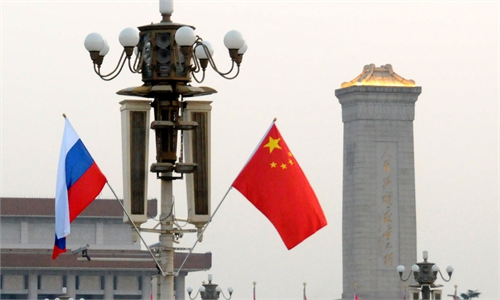Western slander on debt issue a distortion of Chinese economy, full of flawed logic

Illustration: Chen Xia/GT
"China's economy is buried under a Great Wall of debt" and the country's answer is "to add more bricks," Reuters claimed on Tuesday, depicting China's ultra-long special treasury bonds, designed to support high-quality development, as "piling risk onto the country's last decent balance sheet."Western media outlets relentlessly concoct sensational terms to slander China's economy, recently coming up with the "debt mountain" or "Great Wall of debt" narrative. Yet, such fearmongering propaganda will not impede China's steadfast economic growth and transition toward high-quality development.
Since announcing in March that it will issue ultra-long-term special government bonds for several consecutive years, China has issued multiple batches of 20-, 30- and 50-year ultra-long-term special treasury bonds in the past couple of months. These moves are seen by economists as an exploration of better leveraging fiscal policy to meet the changing international economic and financial environment and the needs of high-quality economic development in China.
The issuance of ultra-long special treasury bonds in China has attracted widespread attention from the international community, but there is no shortage of misinterpretation or even ill-intentioned distortion.
The latest criticism of the "Great Wall of debt" by Reuters is a typical distortion. It should be noted that the issuance of these bonds has not led to an "unsustainable debt burden on the Chinese economy," as claimed by Reuters. On the contrary, it is a strategic decision that can boost short-term investment and consumption, and promote the long-term sustainable and high-quality development of the Chinese economy.
First, when compared with other countries worldwide, China's overall debt level is not as high as Western media outlets have exaggerated. China's debt risk is generally manageable, and it has a strong ability to repay its debts based on various indicators.
According to this year's budget report, the ratio of China's statutory debt to the country's GDP as of the end of 2023 was 56.1 percent, lower than the ratios of major market economies and emerging market countries.
China's government has the capability to service its debts well, given its favorable financial position. China's foreign exchange reserves stand at $3.2 trillion - making it the largest in the world. In addition, China has the largest amount of domestic savings, with a national savings rate of 45 percent, a relatively high level compared to that of major developed and developing countries.
Second, China continues to have significant flexibility in its policy decisions regarding the issuance of bonds, and the market has responded positively to these issuances.
In recent months, China has issued multiple batches of savings bonds, which have been met with active purchasing from domestic investors. The strong demand for bonds among domestic investors indicates their confidence in the Chinese economy and government bonds, as well as their sound financial condition.
Foreign investors have also increased their holdings in China's domestic bond market. According to the State Administration of Foreign Exchange (SAFE), foreign investors bought a net $32 billion worth of domestic bonds in May, up 86 percent month-on-month to a record high.
Third, the issuance of long-term special bonds in China is beneficial for addressing some of the current economic problems and promoting high-quality economic development.
Many economists have pointed out that debt itself is neutral. By borrowing moderately, the government can compensate for insufficient construction funds, which is also a common practice internationally. Western media outlets that sensationalize China's debt issues should have an objective understanding of debt and risks.
Due to the slowdown in global economic growth and increased uncertainty in economic prospects after the COVID-19 pandemic, many countries have chosen to use fiscal policies to support economic recovery and growth. A report recently released by the Institute of International Finance showed that global debt reached $313 trillion in 2023, a new record high.
Even in an international financial context with continuously rising debt levels, China retains a prudent approach. The reasonable and effective debt level adopted by China can actually promote its economic development. Based on China's creditworthiness, the World Bank, the IMF and the Asian Development Bank have long regarded China as an important cooperation partner.
In summary, Western media outlets' hype of a "Great Wall of debt" or "debt mountain" regarding China is full of flawed logic and biased misconceptions. China has never neglected the potential risks associated with its debt. On the contrary, appropriate fiscal policies including ultra-long special treasury bond issues adopted by China will support the economy to continue its high-quality development.
The author is a reporter with the Global Times. bizopinion@globaltimes.com.cn



